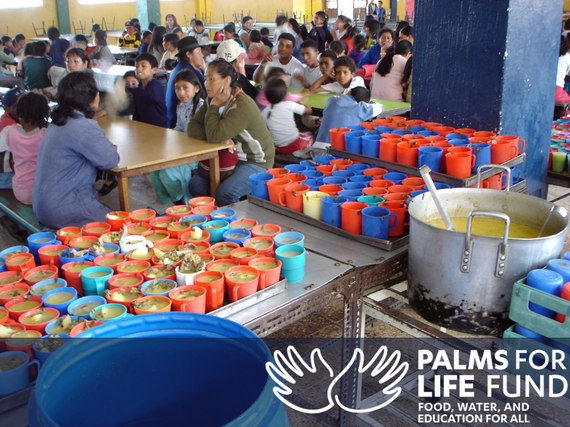Everyone has heard that the language of Eskimos has many different words for snow. But what about a malnourished little boy who has no word for hunger?
During my time in Ecuador as Country Director of the UN World Food Programme (WFP), I visited hundreds of schools around the country to observe the state of our projects.
On this particular day, I arrived just as the morning snack was being served to the kids: a hot cereal drink and a small bag of cookies. This program was made possible thanks to a large food donation by the US Department of Agriculture (USDA). There was total silence as kids sat in the courtyard with their snack. Pleased with the schoolfeeding program I had helped create, I asked a 10-year-old boy, "Do you like the food?" He nodded. I then asked, "Were you hungry?" He stared at me silently. The head teacher filled me in: "The kids don't use that word."
In our culture, the notion of hunger goes hand in hand with the expectation that food will eventually be available. As children, we tell our parents "I'm hungry" or cry - and food appears almost miraculously. A parent who doesn't feed his/her hungry child is judged harshly - and children come to understand that being fed regularly is their birth right, their entitlement.
This is not the case for those living in poverty and with food insecurity. Being hungry is a condition that exists for prolonged periods of time, a default, and completely void of any expectation of receiving food anytime soon. What happens? The word "hunger" disappears from the vocabulary - so there are no expectations, no pain, and no disillusionment.
In my work I witnessed hunger but rarely heard people saying they were hungry. They shared stories about the times when there was drought, no rain day after day, and no food. They confessed that in times of war they hid in the bush and ate grass. They told me there were times when they had to decide which family members were going to be fed that day, as there was not enough food for all of them. They showed me some corn or potatoes, their sole meal for that day. They admitted that for days on end, their children's breakfast was hot tea with perhaps some sugar before heading out to the long walk to school; on a good day there might be a roll. I saw kids spending hours at school without a drop of water, without a crumb of food - and I knew there was no food at home either until dinner and that it was often just enough not to starve.
Today is the 34rd year that we celebrate World Food Day. The little 10-year old boy comes to my mind and I reflect upon those who experience hunger in their lives today, the 805 million people estimated to be chronically undernourished in 2012-2014.
We describe what it means to be undernourished: lacking the sufficient amount of food necessary to grow and lead a healthy life. For a child, this translates into stunting. That means that undernourished children are deprived, forever, from reaching their full physical height and their intellectual potential. Micronutrient deficiencies, creating what is known as hidden hunger, are equally detrimental. This condition affects more than 2 billion people or one third of the world population. Hidden hunger means insufficient intake of vitamins and minerals, such as iron and vitamin A. These micronutrient deficiencies have a direct impact on physical growth, mental health, vision, the immune system, and can even cause premature death.
For those of us who know food as being plentiful, we must stand for the basic human right of all people to access food, a sacred substance, in the quantity and quality necessary for health and life.
Please join Palms for Life Fund in this essential task. No impact is too small. Click here to learn more.
